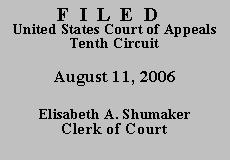

| UNITED STATES OF AMERICA, |
|
In his motion, Mr. Hickman attacked his state sentence. The district court concluded that it would not stay the matter and hold it in abeyance even if it were to construe the § 2255 motion as a § 2254 petition attacking the state convictions. After considering the factors in Rhines v. Weber, 544 U.S. 269, 277-78 (2005), the district court determined that the state claims had not been exhausted, and were either not cognizable in habeas or not sufficiently meritorious to warrant a stay. The district court did not pass on the diligence of Mr. Hickman. Thereafter, the district court declined to treat the motion under § 2254, and denied it pursuant to § 2255 because it did not challenge the federal sentence.
We think it is apparent that the motion is seeking § 2254 relief and should be recharacterized to correspond with its substance. See Castro v. United States, 540 U.S. 375, 381-82 (2003). On appeal, Mr. Hickman maintains that he filed a motion for appointment of counsel on appeal with the state, which he claims was ignored. He contends that he tried to exhaust his state remedies, but then went to the next level, federal court. He also argues the merits of his claims relating to his state sentence.
Rhines dealt with mixed petitions. Traditionally, when a petition contains entirely unexhausted state claims, the petition would be dismissed without prejudice. See Raspberry v. Garcia, 448 F.3d 1150, 1154 (9th Cir. 2006). It is theoretically true that a federal habeas court could deny a petition containing totally unexhausted claims. 28 U.S.C. § 2254(b)(1)(A). However, stay and abeyance of totally unexhausted petitions increases the temptation to decide unexhausted claims and decreases the incentive to exhaust first. See Rhines, 544 U.S. at 277; Rose v. Lundy, 455 U.S. 509, 519 (1982). We need not decide whether the procedure in Rhines applies to totally unexhausted petitions. If Rhines applies, the district court certainly did not abuse its discretion in declining to stay this matter given the nature of the claims. Regardless, given that the claims are entirely unexhausted, the § 2254 petition should be dismissed without prejudice. We order the district court to amend its order to recharacterize the § 2255 motion as a § 2254 petition and dismiss it without prejudice.(1)
We DENY the COA, GRANT Mr. Hickman's request to proceed IFP, and DISMISS the appeal.
Entered for the Court
Paul J. Kelly, Jr.
Circuit Judge
1. We recognize that a subsequent § 2254 motion probably will be time barred, but do not pass on that issue.